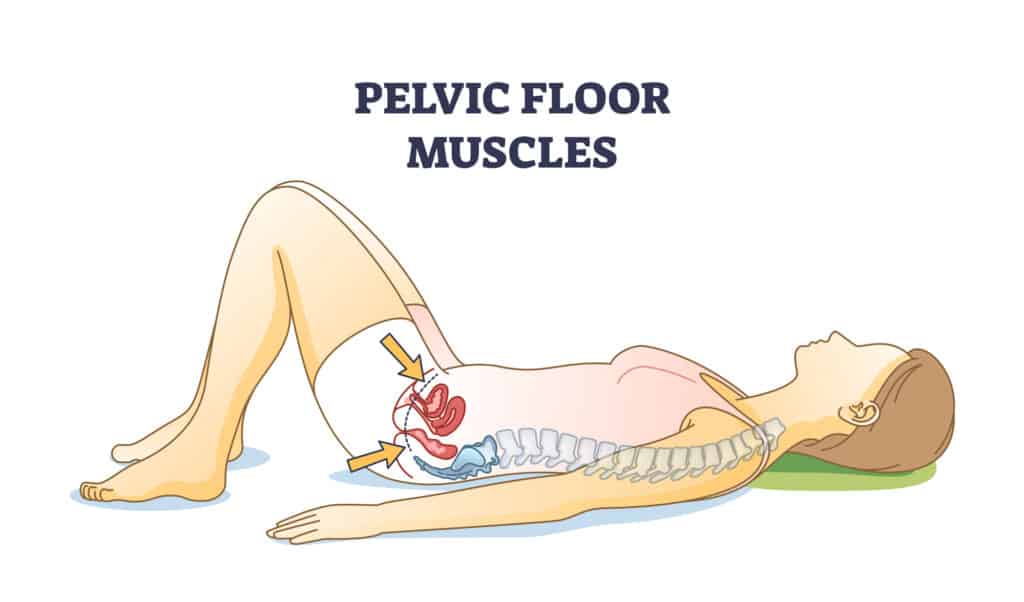
Does your pelvic floor feel tense, tight, and uncomfortable all the time?
Do you feel like you need to urinate every 15 minutes, day and night?
If you cannot coordinate and relax your pelvic floor muscles to have regular bowel movements, urinate, or have pain-free sexual intercourse, you are more likely to have pelvic floor tension or dysfunction.
Some of the most common symptoms of pelvic floor tension include:
Doctors sometimes treat pelvic floor tension with medication. But the most effective long-term treatment for overly tight pelvic floor muscles – without the adverse side effects of medication – is a combination of physical therapy and biofeedback.
With this type of treatment, we can fully resolve the uncomfortable symptoms, so you can get on with living life to the full again.
More Blogs From Nancy Branberg
How Can I Fix My Pelvic Tilt?
Is The Fear of Covid-19 Stalling Your Path To Recovery?
Why Does My Hip Pain Still Linger After Pregnancy?
What Is Pelvic Floor Tension/Dysfunction?

Pelvic floor tension is quite a common medical condition. Chronic tension in the pelvic floor muscles makes it hard to control the muscles and relax them fully enough to have healthy bowel movements and/or urinate.
The pelvic floor is a set of hammock-shaped muscles in the lower portion of the pelvis. The pelvis houses the main pelvic organs like the rectum, uterus, cervix, vagina, and bladder.
It is the pelvic floor muscles that make sure all of these organs are in the correct position. Plus, they offer further support to these organs by wrapping around the pelvic bone and increasing stability by creating a sling-like structure.
When these muscles become chronically tight, women can experience painful sex, and men are at greater risk of experiencing erectile dysfunction (ED).
Generally, we can go to the bathroom because the pelvic floor muscles naturally relax instead of tightening.
In the same way that many other muscular functions inside the body happen naturally.
However, when things go wrong and you develop pelvic floor dysfunction, these muscles involuntarily tighten instead of relaxing, which is what creates issues with constipation, problematic urination, incontinence, and painful sex.
What Causes Pelvic Floor Tension/Dysfunction?

The cause is different for every woman. However, some of the most common underlying causes of pelvic floor dysfunction include the following:
What Is The Connection Between Pregnancy and Pelvic Floor Dysfunction?

After pregnancy and childbirth, women are much more likely to suffer from pelvic floor tension and dysfunction.
Unfortunately, we commonly see this condition in women after their delivery. But why does it occur?
Chronic pelvic floor tension tends to appear after pregnancy and delivery because the muscles and connective tissues that make up the pelvic floor are under immense strain during pregnancy, which can be even more pronounced after a prolonged or difficult labor.
But that doesn't mean you have to endure it. Physical therapy before, during, and after pregnancy and labor help to keep your pelvic floor muscles strong, supple and healthy, and able to relax fully.
What Are The Symptoms of Pelvic Floor Dysfunction?
Several symptoms are indicative of pelvic floor dysfunction.
If you have any of these symptoms on the list below and suspect you may have an issue with your pelvic floor, we recommend that you book a consultation with a Pelvic Floor Physical Therapist who can evaluate your pelvic floor muscles:
Frequent urge to urinate; Difficulty in urinating with starting and stopping numerous times with a need to force yourself to urinate.
Lower back pain with no apparent cause.
Experiencing regular constipation and having to strain when trying to evacuate the bowels. Researchers believe most people suffering from chronic constipation may also have pelvic floor dysfunction.
Having to strain excessively to move bowels.
Pain when urinating
Urinary or fecal incontinence
Regular discomfort in the pelvic area, including the rectum and genitals.
It's interesting to note that women suffer from a different kind of pelvic floor tension than men. In women, pelvic floor tension can severely impact the health of our reproductive system and overall health.
For example, chronic pelvic floor tension can negatively affect the health of the vagina and uterus. Plus, women who experience pelvic floor dysfunction are much more likely to suffer from painful sex.
But we must point out the vast difference between two common conditions – pelvic floor dysfunction and pelvic organ prolapse. Unlike pelvic floor tension, pelvic organ prolapse occurs when the muscles that keep the pelvic organs (bladder, rectum, and uterus) in position become loose and over-stretch.
This condition can lead to one or more of the pelvic organs protruding out of the rectum or vagina and needing to be pushed into place with pessaries.
In men, the pelvic floor muscles are an integral part of the excretory and reproductive systems.
Dysfunction in the pelvic floor muscles in men can impact their ability to urinate and cause an urge to strain and/or urinary leakage.
It also affects their ability to have regular bowel movements and sometimes causes erectile dysfunction. Unfortunately, many men who experience erectile dysfunction (ED) are unaware of the link with pelvic floor dysfunction and don't seek help.
But it's also worth pointing out that the symptoms of pelvic floor dysfunction in men are similar to the symptoms of Prostatitis – an inflammatory condition that affects the prostate gland.
There are various causes for Prostatitis, including a sexually transmitted infection, bacterial infection, or an injury to the nervous system.
How To Treat Pelvic Floor Tension/Dysfunction

Well, the good news is that treating pelvic floor dysfunction can be quite easy with the right support from a PT with specialist training in women's health and pelvic floor physical therapy.
In most cases, we can treat chronically tight pelvic floor muscles without medication or you ever having to undergo surgery.
We often achieve this total resolution of symptoms in just a few sessions over a couple of months using a combination of relaxation and mindfulness techniques – like yoga and meditation, biofeedback, and pelvic floor physical therapy.
Biofeedback:
Pelvic Floor biofeedback is performed by trained physical therapists. There is no pain involved in this treatment, and the success rate is high, with more than 75% of patients treated successfully.
We use biofeedback in various ways to retrain the connection between your brain and your pelvic floor muscles.
For example, we may use video and sensors to examine and monitor the functionality of your pelvic floor muscles as you relax or tighten them.
We then share the feedback with you and suggest ways to improve your brain/muscle coordination.
Pelvic Floor Physical Therapy:
We normally do this in conjunction with biofeedback, or rather biofeedback is part of pelvic floor physical therapy.
We begin by evaluating your pelvic floor muscles, lower back, and pelvis for tightness. We then instruct and guide you through a range of stretching and strengthening exercises to improve brain and muscle coordination and strengthen the actual muscles.
We also teach you how to fully relax the muscles on demand to resolve and prevent chronic tension.
Medication:
In rare cases, you may initially require medication to treat pelvic floor tension's associated symptoms – like constipation and frequent urination. It's not healthy not to have a bowel movement, so your doctor may sometimes recommend stool softeners like MiraLAX to keep you regular.
But we prefer a physical therapy first approach to pelvic floor dysfunction, which works in 99.9% of cases.
Meet Nancy Branberg: Women’s Health Expert
Nancy Branberg is a women's health specialist with over 40 years of experience.
There is nothing she is more passionate about than helping women to feel great in their changing bodies without any discomfort or shame.
Using a holistic approach, Nancy’s mission is to get to the root of your issues and help you feel good in your body again.
So, if you would like some help with your pelvic floor issues, painful sex, or any other potentially taboo aspect of women's health, from pelvic organ prolapse and urinary incontinence to post-partum aches and pains or chronic constipation and want to feel good again.
Nancy offers a unique opportunity to have a free 15-minute telephone consultation to discuss your issues and help you decide whether physical therapy is right for you.
If that sounds like something you want to do, you can arrange your free consultation here. But act quickly because she only releases a limited number of these consultations every month.


